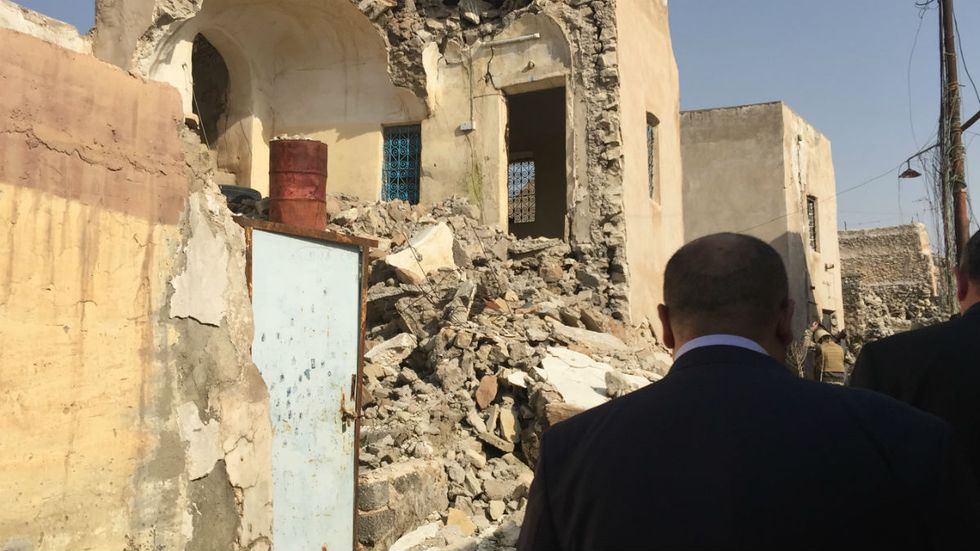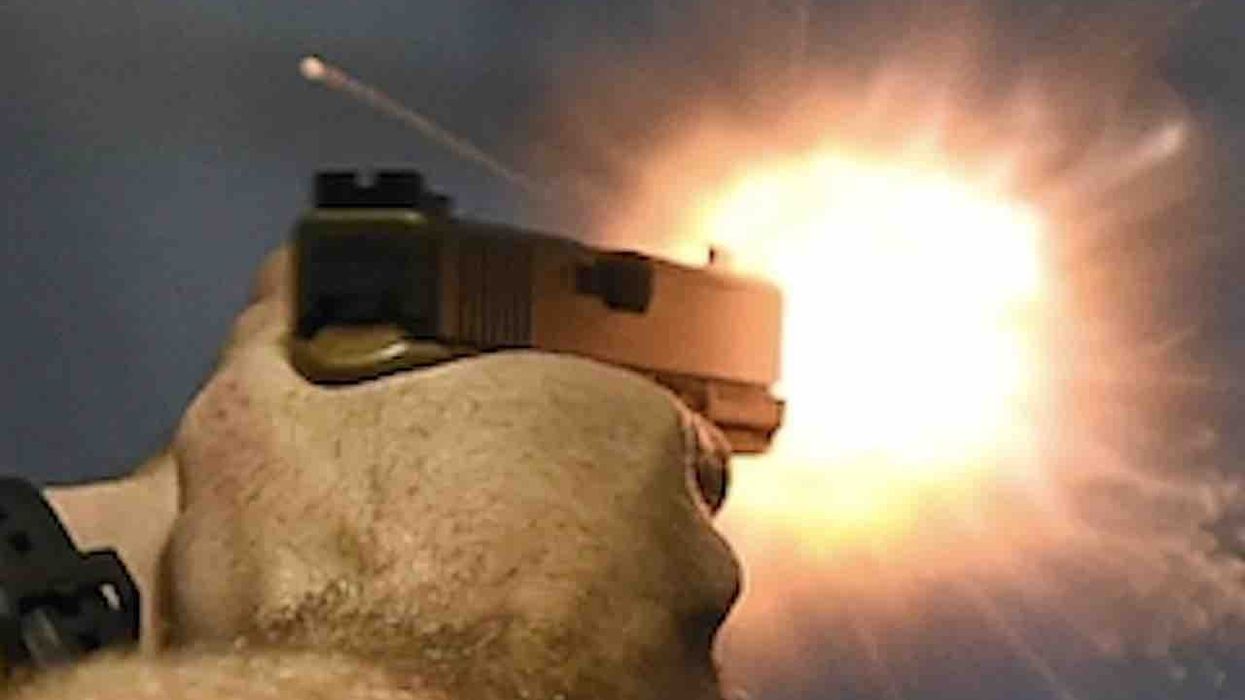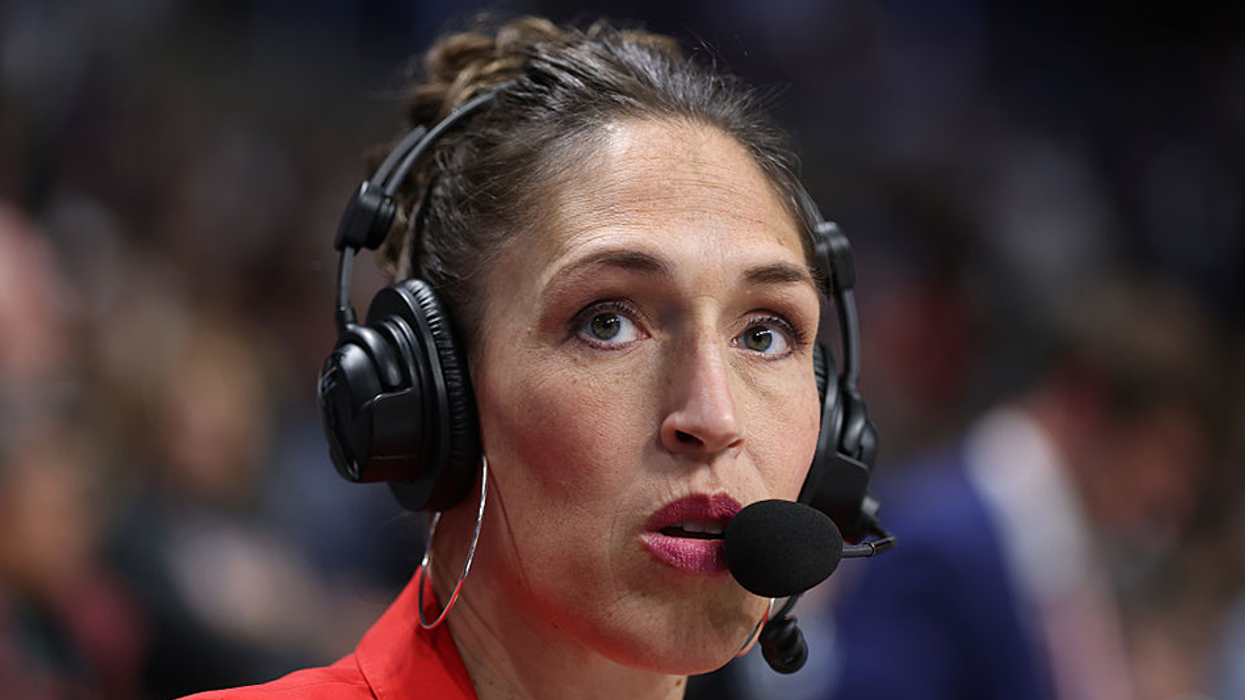
© 2025 Blaze Media LLC. All rights reserved.
Editor's note: This article was originally published on March 26, 2016.
As Christians in the West dye and hide eggs and attend Easter vigils and sunrise services, their brothers and sisters in genocide-ravaged Iraq and Syria will be celebrating Easter alongside them, but in a much harsher environment.
Casting a pall over the most important feast of the liturgical calendar is a sense of homesickness, according to Ashur Sargon Eskrya, Iraq president of the Assyrian Aid Society, a humanitarian organization that provides assistance to Assyrian Christians in Northern Iraq.
“Today our people in Camp are missing home back in the Nineveh Plains and Mosul,” Eskrya, who is located in Dohuk, explained in an email to CR. “As they used to make ready and busy all the last ten days before Easter, most of them are trying to accept the facts and what has happened so that life should continue in the right way.
However, at a time during the Holy Week when Christians mark the resurrection of Jesus Christ on Easter Sunday following His crucifixion on Good Friday, Christians in the refugee camps of Northern Iraq “are still awaiting the liberation of their villages and homes.”
Since ISIS (hereafter Daesh) swept across Iraq and Syria in the summer of 2014, Christian communities who have lived in areas like the Nineveh Plains since the time of the Apostles have been uprooted and scattered all over the region. Many live in refugee camps in the Kurdish region of Government (KRG), while other families and communities have been scattered as far as Turkey and Jordan by the barbarian horde. Nonetheless, even after almost two years of displacement from their ancient homelands, these believers have found ways to adapt their Easter observances to their present state.
“Christians in the camps have different ways of celebrating Easter,” reads Ashur’s email. “If they live in Ankawa [an Assyrian city north of Erbil, Iraq] they have more options to participate in the mass with their own churches. In camps — which are typically tents or caravans — [they worship] with [their own] pastors or priests or with other Christian churches like the Chaldean Catholic Church in Ankawa and the Assyrian Church of the East.”
As for most Christians around the world, the Holy Week celebrations began on Palm Sunday in Iraq.
“They walked with palms in their hands in the pouring rain in Northern Iraq on Sunday and they danced, with our traditional dancing on Palm Sunday,” explained Juliana Taimoorazy, founder and president of the Iraqi Christian Relief Council and fellow at the Philos Project. Taimoorazy is herself an Assyrian Christian. “Nothing really keeps us away from our faith.”
Taimoorazy, who is based out of Chicago, visits the region frequently and was on the ground in Iraq just last month. While there, she spoke with locals about the persecution they had faced under Daesh.
“I asked this woman, ‘Why is it that you did not convert to Islam?’” she recalled. “And she said, even at the point of death, even at the threat of beheading, that she would never think of converting.”
“They told me that their faith has become even stronger because of their persecution. And they also told me, ‘Please don’t take us to the West. Please don’t further displace us because we see how you lose your faith in the West, whereas we here die for it and hold on to it.’”
“They are proceeding with masses as planned,” explained Taimoorazy. “In Northern Iraq, in Baghdad, in Syria they go to the churches that are open. For example there’s a camp in Ankawa called Ashti 1, that is a very, very poor camp. They’ve taken a couple of storage containers and they’ve made it a church. And on every chair you’ll see the Arabic letter “N” [for Nazarene, which Daesh used to mark the houses of Christians when it overtook Mosul]; there are very simple pictures of Jesus and Mary there and there’s a little podium that acts as their altar.”
Finding community with other believers can be difficult for some who have found refuge outside the camps.
“In other places some will miss the mass or miss celebrating Easter,” says Eskrya. “Especially for families who live in rural areas and far away from their relatives or their family friends, because people are distributed in different places now.”
However, even the darkest of times cannot shake the faith of these followers of Christ.
“As for most of our people, they have strong belief in Christianity,” writes Eskrya. “So their faith is still high and at times like Easter, which is very important for our people in the Middle East, this gives them more powerful hope for the future and builds the spirit of God amongst our society.”
Despite the darkness and grinding toll that Daesh’s genocide has taken on their community, hope and joy still shine through.
“For people in the camps, Easter brings people close together, sharing their stories from the days they had at home and memories of the days before two years ago when every thing was different. But for now they will try to arrange everything in the camps” for the holiday, said Eskrya.
“But not only have they lost their own churches and home back home in the Nineveh Plains. They lost many friends and relative because of migration. So the celebration will not be complete for those people if they cannot return back to their own villages and churches.”
#mc_embed_signup{background:#fff; clear:left; font:14px}
/* Add your own MailChimp form style overrides in your site stylesheet or in this style block.
We recommend moving this block and the preceding CSS link to the HEAD of your HTML file. */
Want to leave a tip?
We answer to you. Help keep our content free of advertisers and big tech censorship by leaving a tip today.
Want to join the conversation?
Already a subscriber?
more stories
Sign up for the Blaze newsletter
By signing up, you agree to our Privacy Policy and Terms of Use, and agree to receive content that may sometimes include advertisements. You may opt out at any time.
Related Content
© 2025 Blaze Media LLC. All rights reserved.
Get the stories that matter most delivered directly to your inbox.
By signing up, you agree to our Privacy Policy and Terms of Use, and agree to receive content that may sometimes include advertisements. You may opt out at any time.






